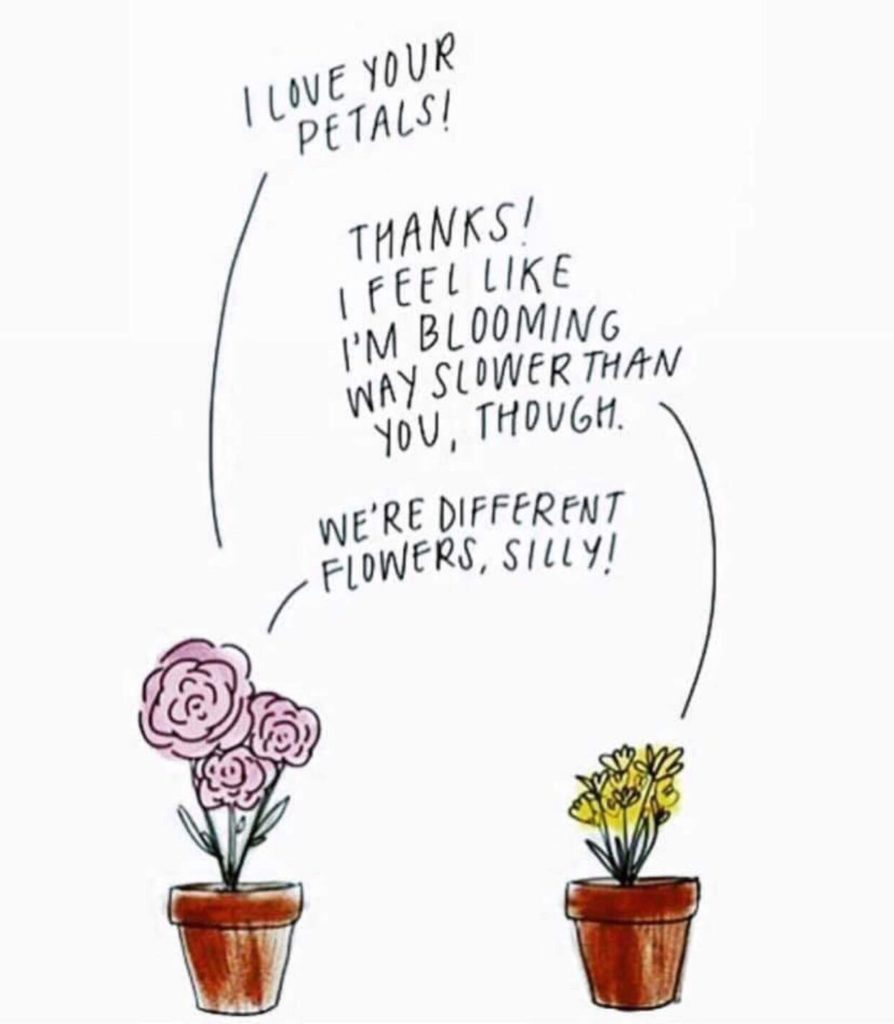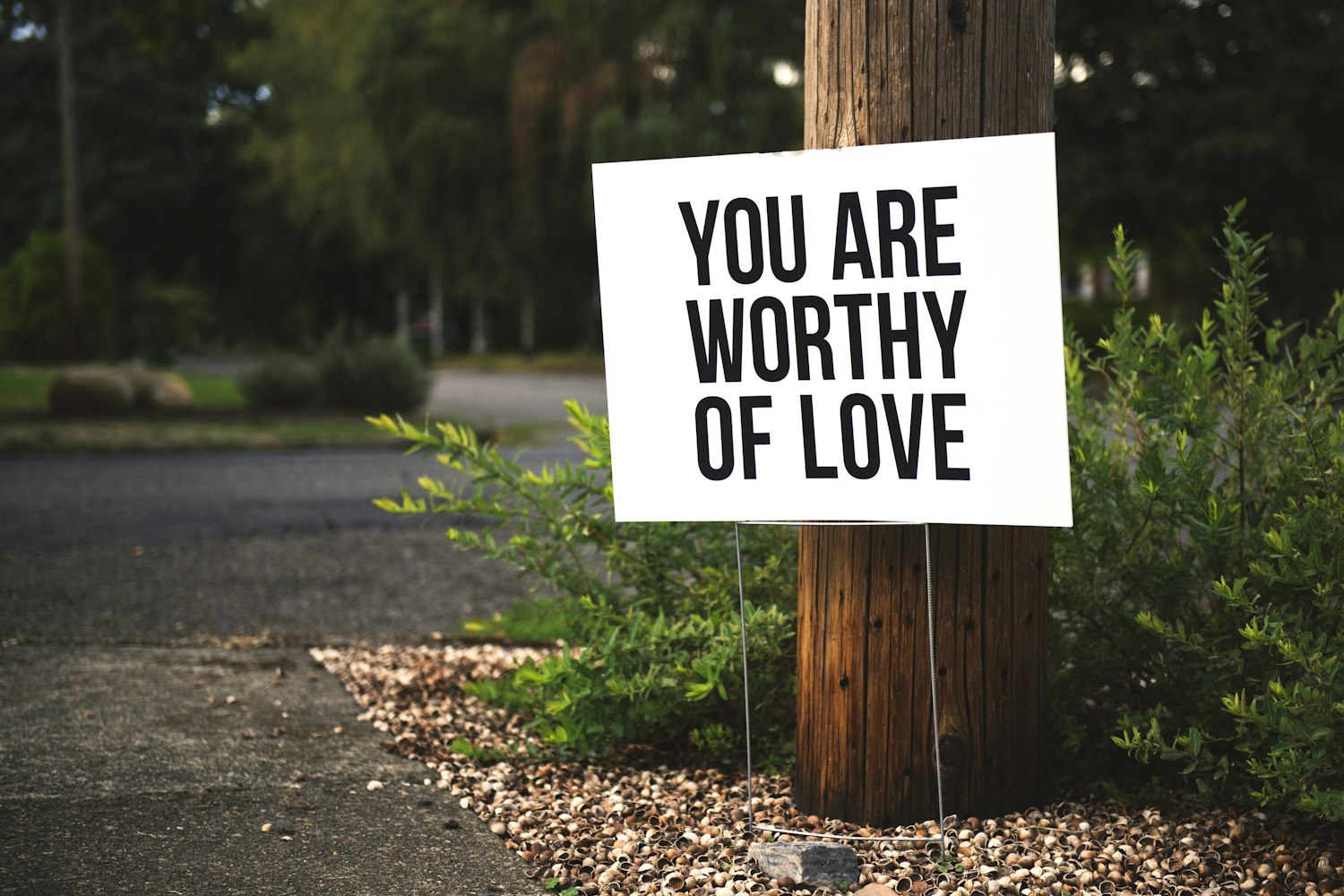Look, we all want to be okay, whatever that means to each of us. We might want to be successful in whatever personal way we like, we might want to be attractive, or well-liked, or we might even desire to be this best version of ourselves that we have constructed.
No matter each person’s individual desire for themselves (even I’ve got a few), we all have inner workings that analyze and strive for our goals. It might feel like an inner drive, or an inner monologue (or dialogue!), or a deep yearning, or something. This is common to all folks. Sometimes, however, this internal monitoring can go awry which can lead to some hot water, self-judgement, negative feelings, procrastination, anxious or depressive symptoms, you name it.
I find I have so much love in my heart for folks who also have love in their hearts… just not for themselves. What’s up with people self-punishing so much?! Does this sound familiar?
“It’s ok if anyone does that, but for me… no.”
“People say they like me, but I know the truth, I’m really terrible.”
“I’m afraid I might not be successful, so I shouldn’t bother.” “
I love this physical feature on other people, but on me, it’s definitely ugly.”
“Yes, of course, Sara, women are allowed to have and enjoy sex, but for me, I should feel guilty.”
Oftentimes, those who love others so much, who are so warm, and kind, and accepting, don’t give that same loving care to themselves.

Different folks have different names for this critical inner voice. My colleague Charlie has called it “Monkey Mind,” as though there’s a monkey sitting on your shoulder, yammering into your ear all this absolute junk you don’t want to hear. It’s been compared to Freud’s ego, the part of the mind that manages reality by controlling the rebellious and desirous id and the moral superego. Emily Nagoski, in her book Come As You Are, described this phenomenon as a “little monitor”:
“When the world is meeting her expectations, the monitor feels satisfied. Nothing is lacking. But sometimes there is a gap between the world and the expectations… when this happens, she goes into command mode. The makes reducing the discrepancy her purpose in life…”
“So the little monitor keeps tracks of how much progress you’re making in relation to how much effort you’re investing. She tallies your effort-to-progress ratio, and she has a strong opinion about what that ratio should be…”
“When the monitor feels you are making good progress… she is satisfied, motivated, eager. But when the monitor feels you’re not making enough progress, she begins to become frustrated, and she prompts you to increase your efforts until you get closer to your goal. If you still aren’t making enough progress to satisfy the little monitor, she begins to get angry . . . and then enraged! And eventually, if you continue to fall short, at a certain point the little monitor gives up and pushes you off an emotional cliff into the “pit of despair,” as the monitor becomes convinced that the goal is unattainable. You give up in hopeless desolation.”
(You can read an article Nagoski wrote about this little monitor and learned helplessness here. Find the above excerpt in Chapter 7 of her book. And, recommended reading includes checking out “Self Regulation of Action and Effect” by Carver and Scheier.)
All that said, when the monitor is making checks on a self-judgement clipboard, or the monkey is chattering away, it’s almost impossible to exist in the present and focus on “What Really MattersTM.” In doing so, people get lost in the “shoulds” and the “have nots” and lose sight of what really feels good: How banging you look in that top, how you’re working on achieving your goals, how you’re closer than before, how the number in the bank account is going up slowly but surely, how even if there’s batter all over the counter, your partner still tried to make pancakes for you, you name it.
The monitor tricks you. The monitor tells you, you need me, because if you didn’t have me, you’d be fucked.
How so, exactly? Please tell me. Honestly.

My monitor used to say, Hey Sara, let’s be terrified of this amorphous thing we learned called “being fat.” Freaking scary, right? We learned growing up that that’s basically the worst thing ever, remember? When you were little and your mom would step on the scale. When people teased you in school and made fun of your weight. When that doctor told you years ago that you were overweight. Remember all those things! Horrifying, right?
How did this go? My monitor would make me look at the calories on every label. My monitor would make me read books about nutrition, fitness, what you “should” eat and what you “shouldn’t” eat. My monitor pushed me to eat much less and exercise more. My monitor made me to feel guilty and ashamed when I would eat. My monitor encouraged me to look at doctored photos of women and to think they were real; my monitor encouraged me to go to the beach and cover up, to endlessly critique my double chin and stomach in literally every photo of me. My monitor encouraged me to suck my stomach in, to flinch if I was touched, to control every single thing in and out of my body in order to look a certain kind of way.
Where did this land me? We could call this disordered eating, a new kind not recognized by the DSM-V yet termed Orthorexia. All I can tell you was, I wasn’t happy. And I lost so much time trying to be how I thought I “should” be.
The monitor is insidious! It’s almost like an abusive relationship in the sense that people feel indebted to the monitor, as if you stopped monitoring you’d spin out of control.
In my example here, the dreaded outcome is to gain weight, to be unhealthy, to be ugly, to become overweight or obese, all these judgement words that have no basis outside of what society has taught me, by the way.
People’s monitors feel necessary. What is your monitor doing for you, really? Making sure people like you as opposed to despising you? Making sure you get good grades, otherwise you’re at risk of failing? Keeping you off the brink of some dreaded outcome?
Am I really only at a “healthy” weight right now, only because this monitor is holding myself accountable 24/7?
I counter this thought. Do I really need a guardrail on the side of the Grand Canyon? Or do I just, kinda, know not to jump in?

Won’t I know if I am creeping toward my dreaded outcome? Won’t I feel different, won’t my clothes start to fit a little different, won’t I be able to not do things I could before? Would I really need to do something like log every ounce of food I consume into something like MyFitnessPal? (Thank goodness that wasn’t around when I was going through this stuff.)
If your monitor is keeping you from being universally despised, won’t people in your life tell you if you came across poorly? Won’t you be able to read their body language? Won’t you be able to check in with your peers, friends, and family? If your monitor is preventing you from failing out of school, won’t you be able to assess your grades without the obsession? Won’t you be able to get feedback from your instructor or peers? Won’t you still be able to monitor your schoolwork and homework?
You can have control over your life without having to control every aspect of your life. Sometimes, things are just, kinda… okay.
So, how to combat the monitor? The usual advice is Mindfulness. Mindfulness, as aforementioned, can be as simple as just noticing the present moment and all things accompanying. In the present moment, things are OK. Just noticing stimuli, how one’s body feels, how things look, what sensory input is around. Being present in the moment can help to calm the monkey mind, and bring ease to the worries of the monitor.
In my case, I got through my shit by starkly pretending it wasn’t there, lovingly referred to as “fake it till you make it.” I honestly tried to stop caring that I actually had a physical body that isn’t magazine (read: airbrushed) perfect. I bravely purchased a two piece bathing suit and went to the beach, and practiced mindfulness there, noticing how it felt (in the beginning, literally horrifying), and worked to be at peace with that. I sat down and let my stomach roll up and tried to be ok with that not ensconced in a baggy hoodie. And sometimes, I had to be ok with it not being ok.
Mindfulness is allowing yourself to feel your feelings, and noticing them as an observer. It’s ok if that feeling isn’t always a positive. And sometimes, if you sit with a bad feeling for a while, it feels less horrendous.
I also noticed how everyone at the beach is literally so attractive, and placed myself in that group of people. I tried to apply my kindness and love for others toward myself: look at that person with the big curly hair, they look great! Maybe I do, too. Rinse and repeat. Apply the loving kindness you feel toward others to yourself and allow yourself to flourish like the beautiful flower you are!

Guess what: I’m literally the same body type now in my cheeseburger and taco life that I was then, eating salads without dressing, hiding in oversized hoodies, and dreading physical touch. I learned to trust in myself. Maybe my body just knows what it’s doing and will give me a “Sara, stop eating” signal when its nutritional needs are met?? Maybe I can exercise just enough in order to feel competent to do physical tasks?? Maybe if my weight fluctuates, that is OK??
(I wouldn’t know. I threw out my scale years ago.)

Photo by Tim Mossholder on Unsplash
1 Reply to “Over-monitoring”
Comments are closed.